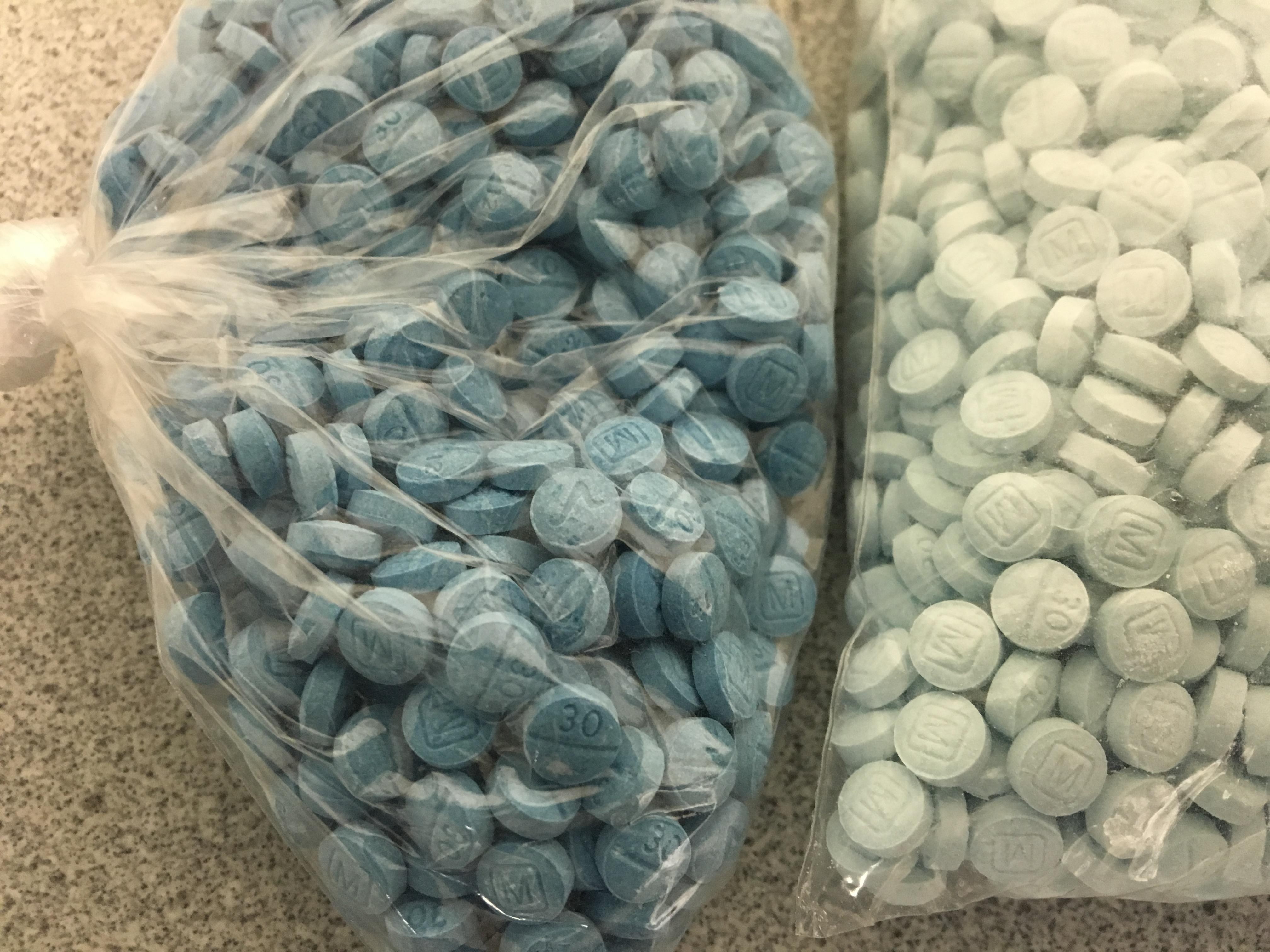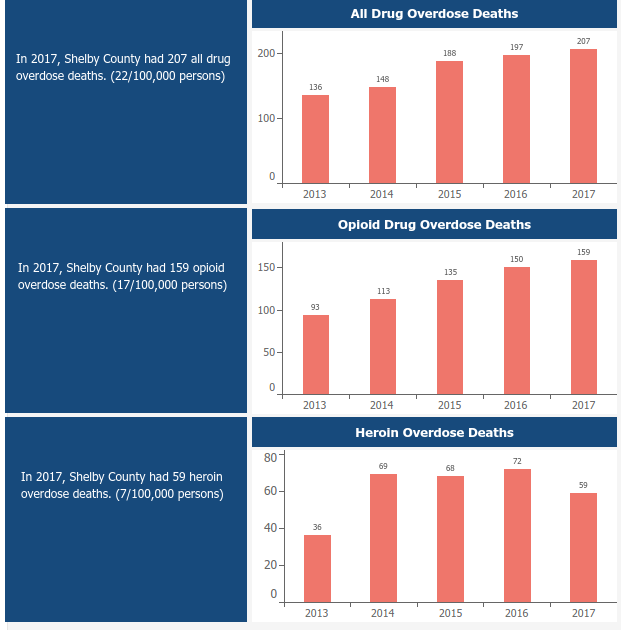 DEA
DEA
The opioid fentanyl can be 100 times more potent than morphine.
Though the number of opioid prescriptions filled each year in Tennessee and Shelby County has been decreasing since 2013, the number of opioid overdose deaths have not.
The latest available data from the Tennessee Department of Health (TDH) shows that of the 1,776 drug overdose deaths that occurred in the state in 2017, 1,268 of them were opioid related.
Nationwide, 30 Americans die every day from opioid overdose, according to the Centers for Disease Control.
[pullquote-2]
Opioids include prescription opioids such as hydrocodone, oxycodone, morphine, and fentanyl, which can be 100 times more potent than morphine, as well as heroin and opium.
Shelby County saw a total of 207 drug overdose deaths in 2017. Of those, 159 were caused by an opioid. Nine more opioid-related deaths occurred that year than in 2016 and 66 more than in 2013.
Fentanyl, a synthetic opioid often mixed with other illegal drugs and sold on the street, was by far the deadliest opioid in Shelby County in 2017. It led to 106 overdose deaths, while heroin led to 59 and opioid pain relievers led to 52.
 Tennessee Department of Health
Tennessee Department of Health
Fatal overdose data for Shelby County
Shelby County had the state’s third-highest number of opioid overdose deaths in 2017 behind Knox County, which had 196, and Davidson County, which had 184.
The TDH report also shows that in 2017, 66 percent of Tennesseans who died from an opioid overdose, filled a prescription included in the Tennessee Controlled Substance Monitoring Database within a year of their death.
Thirty-seven percent of Tennessee residents who died from an overdose that year filled a prescription for an opioid within two months of their death. This is a 20 percent decrease from the number who did so in 2013.
Just under 6.9 million opioid prescriptions were filled across the state in 2017. That’s a little over a million less than were filled in 2013.
In Shelby County, which has a population of about 939,000 people, 607,512 opioid prescriptions were filled for pain in 2017. This number has steadily declined from 2013 when 718,103 opioid prescriptions were filled.
[pullquote-1]
D. Michael Dunavant, U.S. Attorney for the Western District of Tennessee, said last week that many times those who end up addicted to heroin start with a dependence to prescription painkillers.
“Opioid misuse and abuse is an insidious epidemic, created in large part by the over-prescribing of potent opioids nationwide, and unfortunately, Tennessee and West Tennessee is at the center of that epidemic,” Dunavant said at a press conference last week as he detailed the indictment of sixteen medical professionals from Tennessee, including five from Memphis who allegedly illegally distributed of opioid prescriptions.
The five Memphis medical professionals — three doctors and two nurses — who were indicted along with 11 others from Jackson, Tennessee, were arrested in a sweep last week coordinated by U.S. Attorneys and the Department of Justice’s Appalachian Regional Prescription Opioid Strike Force (ARPO).
Together the medical professionals allegedly distributed more than 350,000 prescriptions for controlled substances, equaling about 32 million pills.